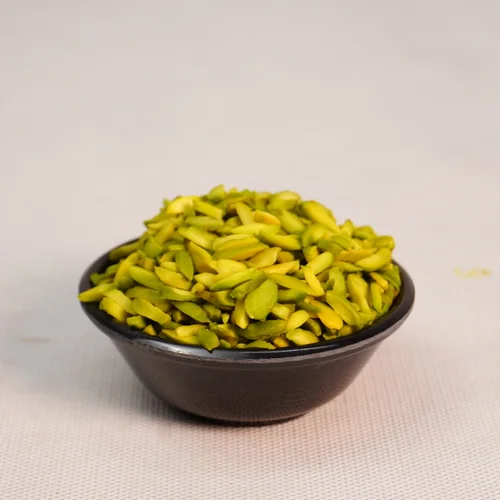Pistachios and Brain Health

Pistachios are more than just a tasty snack – they are a nutritious source of essential vitamins, minerals and antioxidants that support overall health. Recent scientific studies have shown growing interest in how pistachios affect brain function, memory and brain health. As neurological health has become a major focus in modern nutrition, pistachios are being recognized as one of the best brain foods.
Nutritional profile and brain benefits
Pistachios contain a unique blend of healthy fats, proteins, and micronutrients that play a key role in brain health:
- Omega-3 and monounsaturated fats support the health of brain cell membranes.
- Vitamin B6 helps produce neurotransmitters such as serotonin and dopamine, which regulate mood and cognition.
- Antioxidants such as lutein, zeaxanthin, and polyphenols protect brain cells from oxidative stress and aging.
- Amino acids like L-arginine boost blood flow and improve oxygenation to brain tissues.
This synergy of nutrients makes pistachios a smart addition to diets aimed at improving concentration, memory, and mood stability.

Latest medical findings
Recent research in the Journal of Nutritional Neuroscience has shown that regular consumption of pistachios may positively affect cognitive function.
- A 2023 study published in the journal Nutrients found that adults who consumed pistachios daily for 12 weeks showed better working memory and verbal learning compared to a control group.
- Another study from the British Journal of Nutrition found that pistachio antioxidants may reduce neuroinflammation — a major factor linked to Alzheimer’s and other neurological diseases.
- MRI-based studies have even observed increased brain wave activity (particularly gamma waves) in participants who ate pistachios, indicating improved cognitive processing.
Mental health and mood
Beyond cognition, pistachios also appear to have an impact on mental health. Their vitamin B6 content supports serotonin synthesis, which potentially improves mood and reduces symptoms of anxiety.
Additionally, the healthy fats in pistachios help maintain stable energy levels and help prevent mental fatigue and irritability.
How to include pistachios in a brain-healthy diet?
To reap the neuroprotective benefits, experts recommend eating about a handful (30 grams) of pistachios daily. They can be eaten as a snack, blended into smoothies, sprinkled on salads, or used as a topping for yogurt and oatmeal. Combining pistachios with other brain-healthy foods, such as blueberries or dark chocolate, can enhance their cognitive benefits.
Conclusion
Scientific evidence continues to confirm that pistachios are more than just a tasty treat—they’re a functional food for brain health. From boosting memory and focus to protecting against age-related dementia, these vibrant green nuts offer a simple and natural way to nourish your mind. Including pistachios in your diet on a regular basis may be one of the tastiest ways to support cognitive longevity.
Source: Zalando




